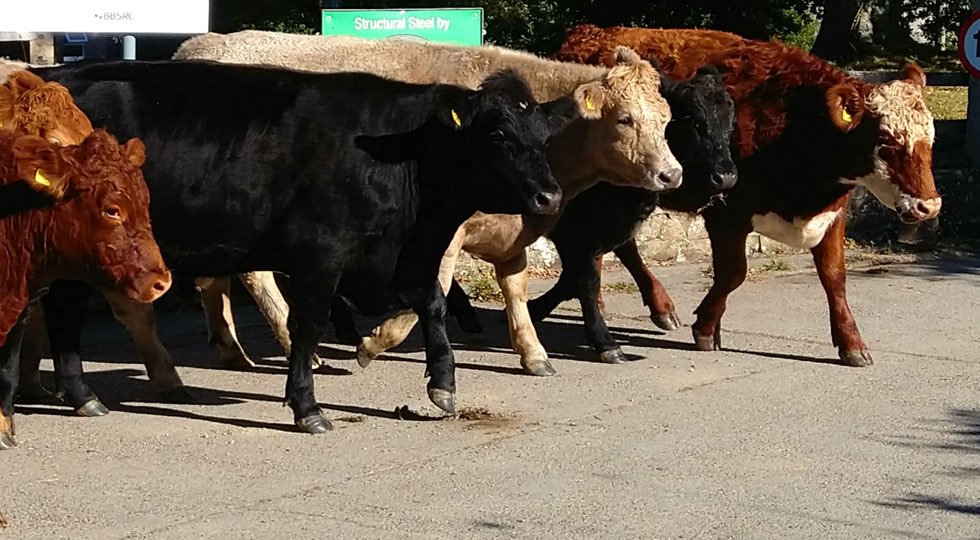Enabling beef producers to meet changing consumer preferences

Breedr and Rothamsted Research announce ‘Field to Yield’ trial to help livestock producers gain higher retail value
Changing customer tastes mean that almost half of prime beef now fails to meet ideal market specifications1, resulting in lower prices for producers and waste in the value chain. Breedr has developed an easy-to-use platform that will help farmers finish cattle to retailers’ specifications with greater precision, underpinned by the data to evidence this. The company is launching the Field to Yield trial with Rothamsted Research at North Wyke, to improve the metrics available to farmers, at Agri-Tech East’s REAP Conference 2018 on 7 November.
Breedr co-founder Ian Wheal was brought up on a mixed livestock farm in Australia, where his father was one of the first to adopt electronic tagging. The tags capture information about the performance of individual animals and enable an audit trail to be created of medical interventions, time on grass etc.
Wheal explains that this knowledge of data-driven production has helped him to develop a decision support system for UK producers. He says: “There is a big drive towards loin (steaks) and mince (burgers) from consumers, however the current EU-wide EUROP grading system, which is used to value beef, was originally designed when rump was the main piece of beef consumed.
“The result is that today’s farmers are flying blind when trying to meet the specifications of retailers for meat with less fat and improved taste.”
Data from the Agriculture and Horticulture Development Board (AHDB) suggests that if customers have a bad eating experience it can take up to 12 weeks for them to buy that specific cut of meat again.
Breedr’s Field to Yield project with Rothamsted Research is looking at ways to improve the metrics available to both farmers and processors, to truly understand the yield of an animal and the quality of its meat.
Wheal continues: “Currently producers use their experience and expertise to visually assess conformation and estimate carcass weight as a percentage of live weight, but it seems this no longer syncs with what retailers need for their customers. We are looking at ways to capture this information in a more evidence-based way that will provide farmers more meaningful insights.
“One example would be to provide better understanding of how genetics and breeding can create a desirable frame size. Also, to investigate how the use of 3D camera technology can help standardise measurement and give a much earlier predictor of value, and better align to the actual needs of a processor.”
Breedr aims to create a virtuous circle where consumer behaviours and buying decisions are fed back through the value chain to inform decisions on breeding, feeding and animal welfare, and livestock producers can provide data evidence that they are producing premium meat.
Breedr is working with Professor Michael Lee, Head of Sustainable Agricultural Sciences at Rothamsted Research North Wyke and Chair in Sustainable Livestock Systems at Bristol Veterinary School, on the Field to Yield project, which is funded by the Impact Labs.
Prof Lee is excited by the project and comments: “Our research shows that it is possible to produce livestock with the desired attributes within 18 months from pasture based finishing, to balance the needs of production efficiency, product quality and environmental impact. But to achieve such targets requires excellent pasture management, appropriate animal genetics and visualisation tools to predict carcass and eating quality.”2,3
A spokesperson from the Impact Lab says: “Livestock makes a valuable contribution to the UK economy. Supporting farmers to produce high quality meat with lower inputs and reduced environmental impacts will improve their competitiveness in the global market.”
Breedr aims to bring data to the supply chain that can help processors and retailers buy appropriate animals, increase usable meat for their need and reduce variance in supply. Wheal comments that most buyers are now data-analysts: “If buyers have the evidence to show that a particular producer consistently produces meat of the desired quality then it becomes easier to assess fair value.
“Data paves the way for a different type of relationship between producers and their customers where a quality product is rewarded and the guesswork is removed.”
Livestock producers interested in gaining early access to the Breedr technology are invited to take part in the Field to Yield trail. More information is available www.breedr.co




